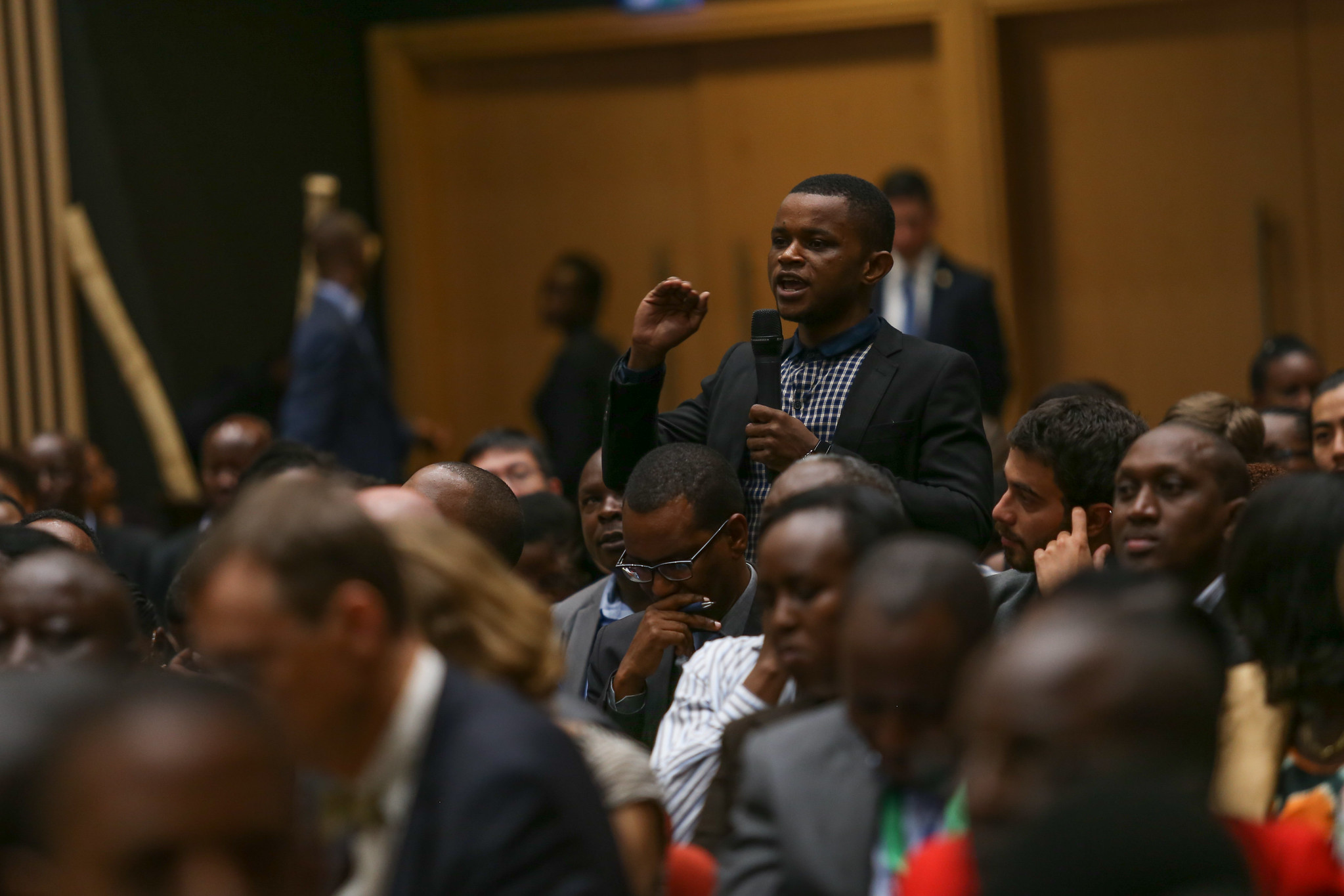Photo: Youth in Rwanda engage in a Q & A session (Creative Commons Attribution)
As I addressed the Fourth International Conference on Youth and Land Governance in Africa (CIGOFA4), I reflected on the critical issue of youth and land access in Africa, which remains a significant barrier to sustainable development. Land is more than an economic asset; it is the foundation of our cultural heritage, our identity, and the key to our future. However, across sub-Saharan Africa, land access continues to pose challenges, especially for our youth. These challenges, if left unaddressed, will hinder Africa's growth.
Only about 10 percent of land in sub-Saharan Africa is formally documented, with the remaining 90 percent held under customary tenure systems, managed by traditional authorities. While these systems play a vital role, they often limit access to land for youth and women. For many, particularly rural youth, land is accessible primarily through inheritance, but even this access is often insufficient. The fragmentation and poor quality of inherited land make it difficult for young people to earn a sustainable livelihood. This lack of access to land drives many young people to migrate to urban areas, leaving our rural economies without the energy and innovation they desperately need.
In my role as Chairman General of the Forum of African Traditional Authorities (FATA), I have witnessed the critical role traditional leadership plays in land governance. But to bring about the necessary changes, traditional authorities must be given increased resources. We are the custodians of 90 percent of Africa’s land, and without the financial and institutional support to effectively manage and reform these customary systems, progress will remain slow. To better serve our communities, we need to empower our traditional institutions with the resources required to modernize and make land governance more inclusive, particularly for youth and women.
Beyond empowering traditional authorities, we need closer cooperation between traditional leaders and governments to create and enforce policies that lead to the transformation of the land sector. Governments play a crucial role in shaping formal land markets, redistribution programs, and legal protections for land rights. Working together, we can ensure that these policies address the unique needs of our youth and women, providing them with access to land that is secure, fair, and sustainable. Closer collaboration between the state and traditional authorities will also help create a more harmonious and coordinated approach to land governance.
However, the challenges of land access are not isolated from broader economic and social issues. Conflict over land and resources continues to be a source of tension in many African regions, often exacerbated by tribal divisions. To mitigate these conflicts and promote peace, we must unite Africa’s diverse tribes through the integration of cultural principles rooted in Pan-Africanism. Pan-Africanism emphasizes unity and collaboration across our many ethnic groups, and by fostering this spirit, we can transform our rural economies. Mechanizing agriculture and accelerating the implementation of infrastructure projects—especially those linked to the African Continental Free Trade Area (AfCFTA)—will provide the foundation for lasting economic growth and prosperity. By working together, we can unlock the potential of our rural areas, create jobs, and drive development forward.
One of the key enablers of this transformation is the African Continental Free Trade Area (AfCFTA), a landmark initiative aimed at increasing trade and economic integration across the continent. For the AfCFTA to succeed, we must ensure that traders, especially African traders, and their goods are provided with timely and adequate security. Without secure trade routes and protection for our traders, governments will be unable to fully benefit from the opportunities presented by this free trade area. The security of goods and traders is paramount in ensuring that Africa’s internal markets thrive and that the wealth generated stays within our continent to benefit all Africans.
In conclusion, Africa’s future depends on empowering our youth and ensuring their access to land. Traditional authorities must be supported with increased resources to manage land equitably, and stronger collaboration between governments and traditional leaders is essential to transforming the land sector. By uniting our tribes through Pan-Africanism, we can create the conditions for peace, mechanized agriculture, and infrastructure development. And by securing our trade routes, we ensure that Africa can fully benefit from the AfCFTA, laying the groundwork for a prosperous and united future.
It was my pleasure to participate in the the fruitful discussions at CIGOFA4 and to the shared commitment of traditional authorities, governments, and communities in building a future where our youth can thrive, where land is accessible to all, and where Africa's potential is fully realized.

